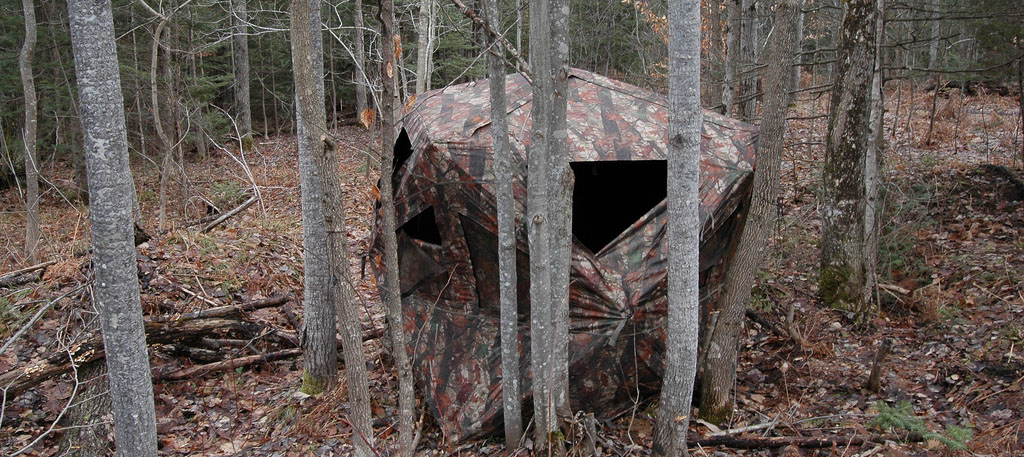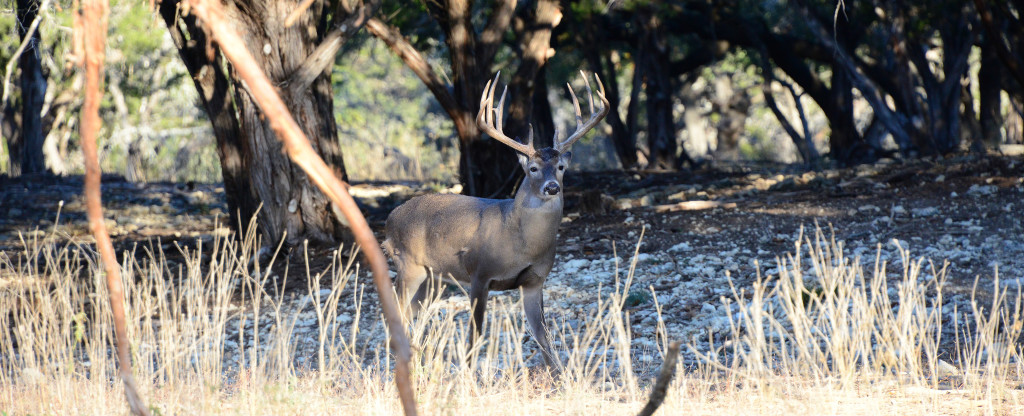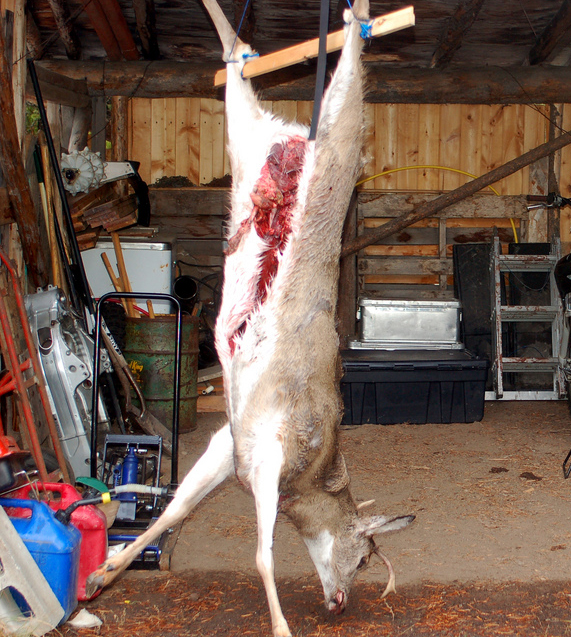
Whether hunting private land, public land, or camping out for a few days/weeks for your next deer hunt it's always important to take the right steps in preparing for the trip out. To make things a little easier we have created this deer hunting checklist which you can use. This checklist will assist you in preparing for the hunt, what you will need to pack, and things you will need if you are luck enough to take down a deer.
There are also some great tips for those who will be setting out and camping on the hunt below the checklist.
Deer Hunting Checklist:
First lets begin with the checklist, starting off with the preparation before the hunt.
Before the Hunt
- Make sure all equipment is cleaned (rifles, optics, etc)
- Test all equipment
- Wash all hunting attire
- Sharpen blades for hunting knife, skinning knife, broadheads, etc
- Monitor game camera activity
- Check regulations and restrictions
- Purchase appropriate license/tags
- Setup food plots/deer feeder
- Prepare tree stand
- Get permission from land owner
- Make sure relevant apps are loaded up on smartphone
Packing for Out on the Field
- Backpack
- Rifle
- Rifle Scope or Red dot sight
- Scope mount (rings and base)
- Bullets/ammo
- Gun cleaning kit
- Gun cleaning oil
- Bow
- Hunting arrows
- Broadheads
- Sling
- Trail camera
- Batteries & memory card
- Tree stand climbing sticks
- Tree stand safety harness
- Deer attractant
- Rangefinder
- Grunt calls and rattlers
- Shooting ear protection
- Basic toolbox (hammer, etc)
- Snacks and food
- Stove
- Utensils
- Water
- Scent masking sprays and deodorant
- Smartphone
- Lighter and matches
- Two way Radios
- Hunting Binoculars
- Binocular harness
- Hand warmers
- Heated socks
- Hunting vest
- Hunting Camo - Jackets and Pants
- Hunting boots
- Gloves
- Moisture wicking undergarment
- Shirts
- Underwear
- Shemagh
- Shooting glasses and sunglasses
- Poncho
- Umbrella
- Sunscreen
- Tent
- Sleeping bag
- First aid kit
- GPS
- Insect spray
- Hunting knife
- Flashlight
- Multi-tool
- Compass
- Lens cleaner for optics
After the Harvest
- Skinning knife
- Gutting knife
- Field dressing kit
- Ice and freezer packs
- Saw
- Rope
- Block and tackle
- Hooks
- Plastic game bags
- Sanitary wipes
- Meat grinder
Things to Consider When Packing for Deer Hunting Camp
 Setting up and camping when you are deer hunting can be very pleasant and easy, making the hunting trip seem like a treasured adventure. On the other hand, a person can end up dreading the hunting just because of the camping trip, if it isn’t done properly and methodically. It all begins with packing for the trip to deer camp.
Setting up and camping when you are deer hunting can be very pleasant and easy, making the hunting trip seem like a treasured adventure. On the other hand, a person can end up dreading the hunting just because of the camping trip, if it isn’t done properly and methodically. It all begins with packing for the trip to deer camp.
Consider Where Deer Camp Is
It may sound simplistic, but where you are camping has a lot to do with what you should take with you to deer camp. If the deer camp is going to be in the flatland or low country, you needn’t worry as much about sudden snowstorms and the like. They may still happen and it is good to be prepared, but camping in mountainous areas can mean an increased likelihood of quickly changing weather. It is a good idea to have an idea of exactly where you are going and what kind of conditions you are likely to encounter before you even start planning a camping list.
Writing a List for Deer Camp
One of the worst mistakes you can make when heading out for deer camp is to just throw a bunch of camping gear into the car or pickup and head out. Creating a list is the best step to take before camping. There should actually be two lists, though. One is exclusively for food.
Never assume that you will be able to find food or quickly bag a deer when you go out to deer camp. There is no reason to become extravagant and list things that you won’t eat again until next deer season. On the other hand, add more food to the list than you think you’ll need. If you are camping for two days, pack enough food for four. If you are going out for a week, take enough for a week and a half. This is common sense. If, for any reason, you aren’t able to come back when you’d planned or decide to stay out a little longer, food isn’t a concern once it is packed. Few things can put a damper on a great deer camp adventure faster than an empty belly.
The other list is for everything that isn’t food. This includes pots and pans, utensils, rifles and ammunition, bedding, first aid kit, tents, camp stoves and basically anything that you need but aren’t going to eat. Don’t go overboard, however. The deer camp should be comfortable, but you also have to consider the weight, and space you have to work with. Food is a necessity, as is bedding and shelter, but many things that you might consider taking might take up extra space and weigh more, so as you are writing the list, consider carefully which items are ‘want to have’ rather than ‘need to have’.
Assemble Gear for Deer Camp
Once the lists are created, put all of the hunting gear from the lists together near the car or pickup and look to see what you have. If it is obvious that it won’t all fit, figure out what items you can do without. This is a simple step, but an important one. Otherwise, you could be spending a lot of time trying to fit everything in. By the time you make it to deer camp, it will then be nearly certain that you will have forgotten something you actually did need.
Packing for Deer Camp
When you are actually packing, try to put the heaviest items on the bottom and toward the front of the vehicle. Other items can be stacked on top of these. The idea is to use as much of the space as possible, while the heaviest items are where they are the most stable. Loose items can be put in spaces that may be created between boxes or containers.
At the same time, consider which items you will want first, for setting up deer camp. These should be put in the rig last, since they will then be the first to be removed. By doing this, camp can be set up while you are in the process of unloading the gear. By the time the vehicle is totally unloaded, deer camp can be mostly set up. You can then make the final touches and kick back to relax. Without doing it in this way, you’re likely to find yourself with a pile of things that still need to be organized and set up, delaying the enjoyment of being in deer camp.
Packing for deer camp doesn’t need to be a major task if you know how to go about it. The ultimate goal is naturally to come back with your venison. However, there is nothing at all that says that you can’t greatly enjoy your time in deer camp, in the process. The enjoyment begins with the packing, which itself isn’t usually fun, but which can be done in such a way that you are most likely to be having fun in camp as soon as possible.
Hopefully this deer hunting checklist and these packing tips help make that next hunt a little easier and more enjoyable.
Image by SueJunky



